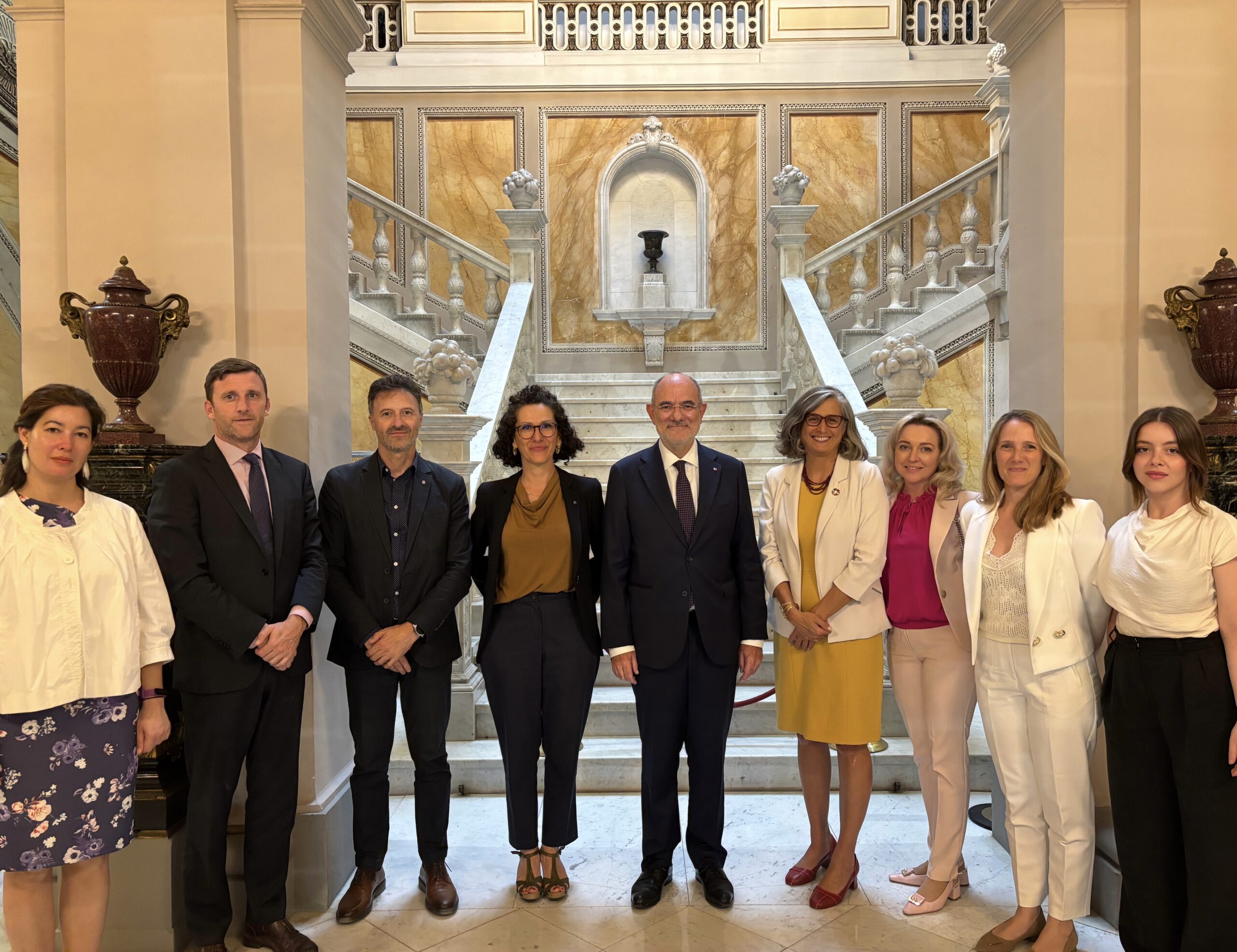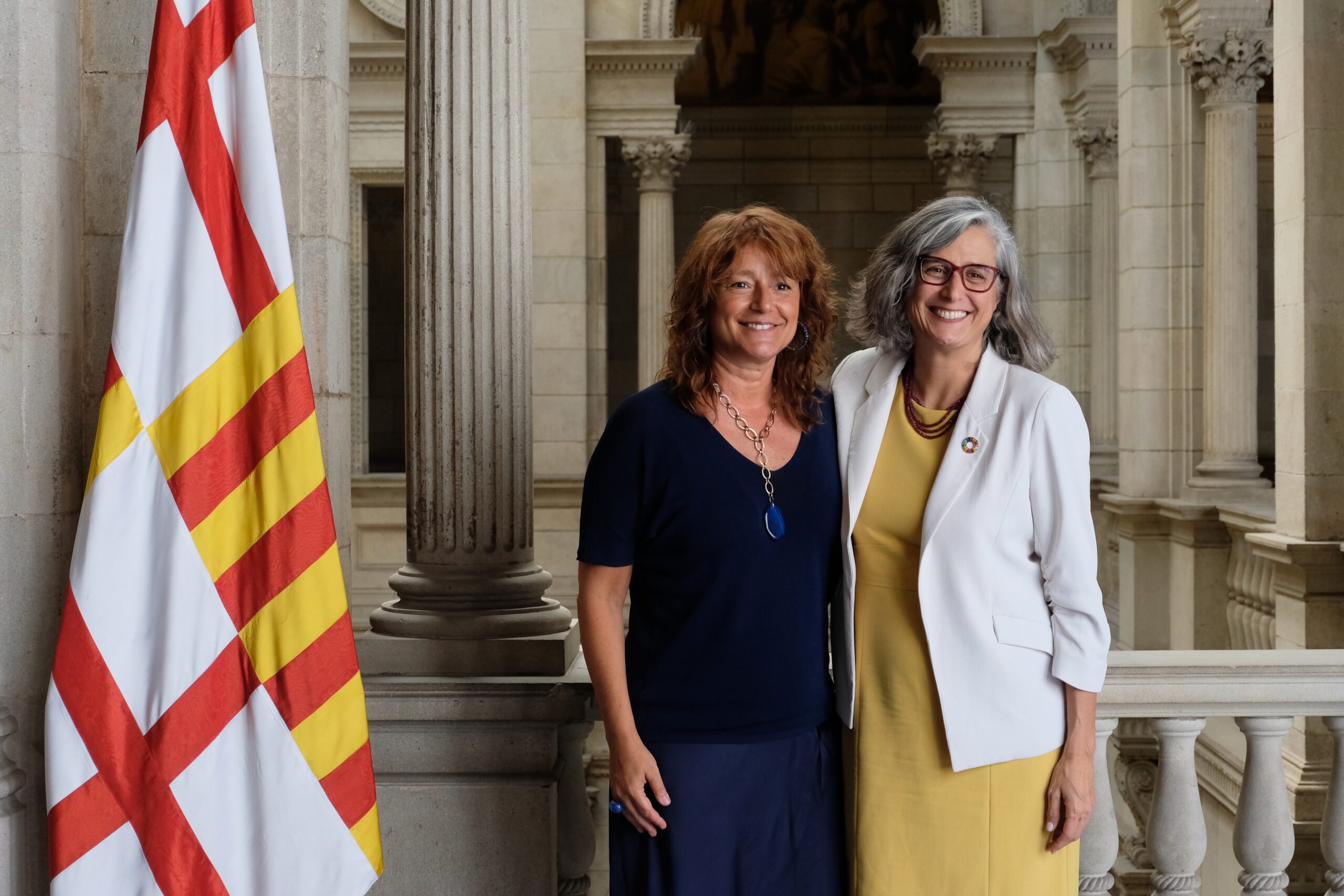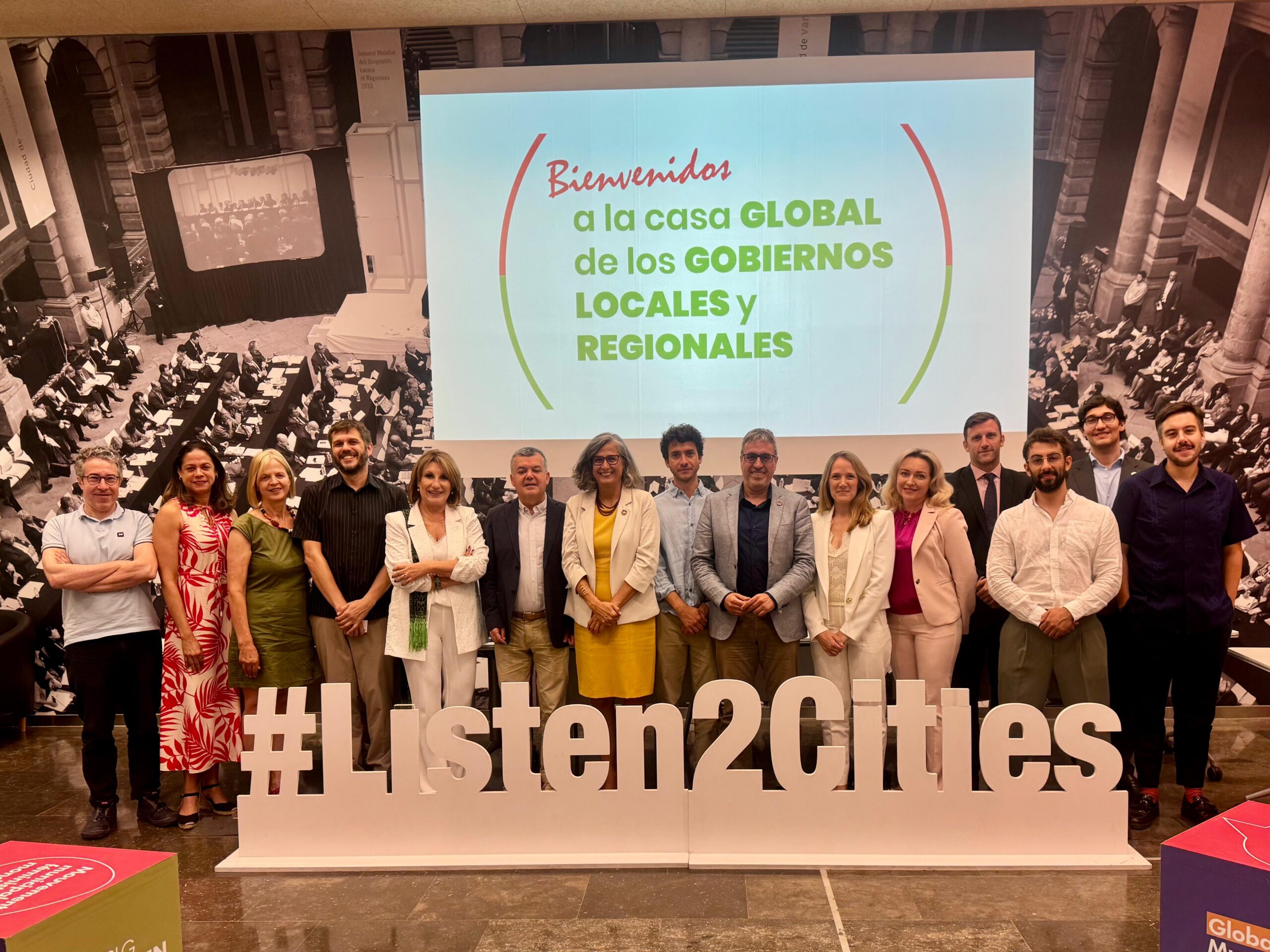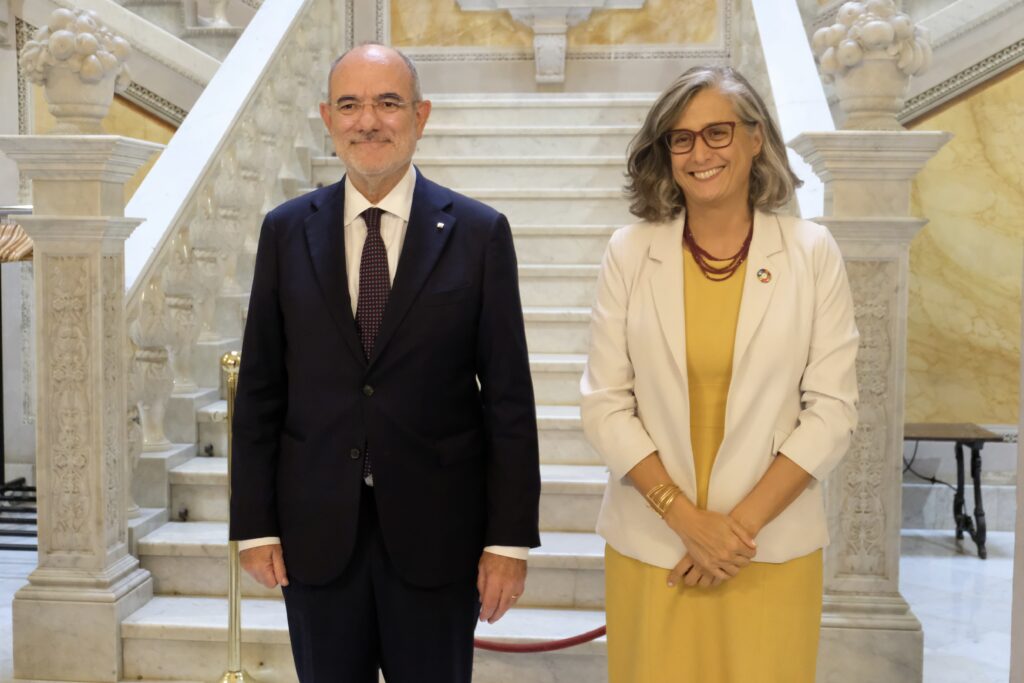- Strategic meetings with local and regional authorities focused on urban resilience, housing adequacy, localization of SDGs and strategic cooperation as part of UN-Habitat’s new Strategic Plan 2026–2029.
- Commitment with leading city networks—including UCLG, Resilient Cities Network, Metropolis, MedCities, CIDEU, and United Regions Organization—highlighting the essential role of multilevel cooperation in shaping resilient future for cities and regions and expanding the global impact.
- Engagement with Fira de Barcelona and Smart City Expo World Congress to better promote innovations that are making cities more resilient, sustainable and inclusive.
On July 9th, in Barcelona—a city renowned for its avant-garde urban resilience policies and commitment to sustainable development—Ms. Anacláudia Rossbach, UN Under-Secretary-General and Executive Director of UN-Habitat, together with the City Resilience Global Programme (CRGP) team, met with representatives from the Government of Catalonia and the Barcelona City Council. Her visit followed her participation in the Fourth International Conference on Financing for Development in Seville (June 30th-July 3rd), served to reinforce long-standing partnerships and discussed future collaborations based on the UN-Habitat’s new Strategic Plan, adopted last May by the member states on the resumed second session of the United Nations Habitat Assembly.
In addition, Ms. Rossbach also engaged with representatives of the main international city networks present in Barcelona—including United Cities and Local Governments (UCLG), Resilient Cities Network, Metropolis, MedCities, CIDEU, and United Regions Organization / Forum of Regional Governments and Global Associations of Regions (ORU-Fogar). These exchanges emphasized the importance of multilevel cooperation in advancing global urban agendas, strengthening joint strategies, and expanding the shared impact of local action.
The meetings were framed within the new UN-Habitat Strategic Plan 2026–2029, which defines three integrated impact areas: equitable and inclusive prosperity, preparedness, response, and reconstruction, and environmental and climate action. These are supported by a transversal focus on ensuring adequate housing, access to land, and basic services for all. Resilience, as a key element of the new strategic vision, was central to all conversations—highlighting its role in building more inclusive, climate-smart, and crisis-ready cities. As she noted; “Resilience is fundamental for the cities and regions of today and tomorrow. Catalonia and Barcelona have a long history of reinventing and transforming its urban and social systems, and its values, principles, and local experience are a great contribution to our global work. As we move forward with the implementation of UN-Habitat’s Strategic Plan 2026–2029, urban and territorial approaches remain key to localizing the SDGs and accelerating impact worldwide.“
Catalonia, Barcelona and UN-Habitat: Long-term partnership rooted in resilience
Barcelona has long stood as a global reference in integrated urban planning and risk-informed governance. Since 2013, UN-Habitat and the City of Barcelona have cultivated a partnership centered on resilience and urban transformation, beginning with the launch of the City Resilience Profiling Programme (CRPP), the predecessor of today’s City Resilience Global Programme (CRGP). This collaboration has yielded innovative methodologies and tools, as well as several projects in Barcelona and elsewhere in the world that have informed global discourse and local implementation alike.
The visit also acknowledged the historical role of Catalonia and Barcelona in reimagining urban and social systems and their contribution to UN-Habitat’s principles and values. The territory’s experience in localizing the SDGs serves as a valuable reference for international action. In this context, Ms. Rossbach reiterated the importance of expanding UN-Habitat’s presence in Spain—through its regional office in Madrid, the Local2030 Coalition in Bilbao, and the City Resilience Global Programme based in Barcelona—as a way to strengthen technical cooperation and deliver greater impact across cities and regions worldwide.
Parallel to this, UN-Habitat’s cooperation with the Government of Catalonia began with a non-financial agreement that matured into a formal contribution framework in 2022. With a focus on adapting the City Resilience Global Programme methodology at the territorial level, this agreement has enabled upscaling operations in the Terres de l’Ebre region, where 53 municipalities have engaged in resilience profiling and recommendations of actions.
Ms. Rossbach met with Jaume Duch, Minister of the European Union and Foreign Action of the Government of Catalonia. She expressed gratitude for the collaboration and reaffirmed the shared commitment to sustainable and inclusive development.

In this context, UN-Habitat reaffirmed the importance of reinforcing cooperation not only with institutional partners but also with the broader network of local and regional alliances. Strengthening these connections through a clear strategic vision and coordinated action is essential to scaling the impact of shared efforts. High-level platforms such as the World Urban Forum and the Smart City Expo World Congress provide critical opportunities to advance this vision, promote collaborative solutions, and amplify the visibility of cities leading global transformation.
A shared concern around housing affordability emerged as a key priority. UN-Habitat proposed initiating joint technical assessments and dialogue on resilient and sustainable housing solutions, also exploring the impact of tourism on housing systems and public services.
During her visit in Barcelona, Ms. Rossbach met with Laia Bonet, first Deputy Mayor for the Area of Ecology, Urban Planning, Infrastructure, Mobility, Public Space and Housing. She commended Barcelona’s continued leadership in implementing forward-looking policies across housing, climate adaptation, public space, and governance—highlighting the City’s alignment with UN-Habitat’s strategic priorities and its critical role in localizing the Sustainable Development Goals (SDGs). A new agreement between the two parties will be formally signed this summer. The City’s ongoing work in Saida (Lebanon) and Medellín (Colombia), supported by the CRGP, was also recognized.

Local innovation and global networks: accelerating action through partnerships
Earlier in the day, Ms. Rossbach engaged in strategic discussions with representatives of key urban networks—including United Cities and Local Governments (UCLG), Resilient Cities Network, Metropolis, MedCities, Centro Iberoamericano de desarrollo estratégico urbano (CIDEU), and United Regions Organization. These dialogues reaffirmed the central role of local and regional governments in implementing transformative urban agendas and scaling impact through shared knowledge and solidarity.
She also held a bilateral meeting with Fira de Barcelona and the Smart City Expo World Congress team. UN-Habitat’s ongoing collaboration with Fira—anchored in a renewed Memorandum of Understanding (2023–2028)—enables joint work on people-centred smart cities, the promotion of inclusive digital innovation, and visibility for flagship tools such as the World Smart City Outlook and technical guidelines on digital transformation. Proposed joint sessions for the upcoming congress will focus on housing, urban resilience, and sustainable tourism, demonstrating how cities can leverage technology to enhance equity and inclusion.

As the world approaches 2030, partnerships like those fostered in Barcelona are vital to achieving global goals. Through strengthened collaboration with city networks, local institutions and innovation platforms, UN-Habitat continues to promote concrete, locally driven solutions for a more resilient urban future.






